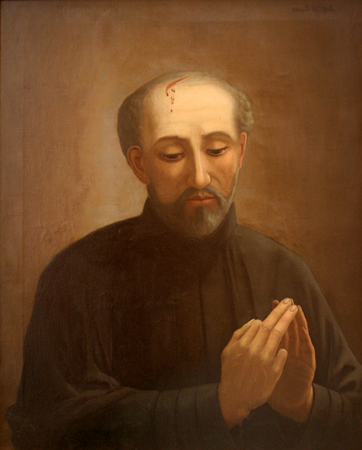***
Gospel: Mark 6:30-34
The apostles gathered together with Jesus
and reported all they had done and taught.
He said to them,
“Come away by yourselves to a deserted place and rest a while.”
People were coming and going in great numbers,
and they had no opportunity even to eat.
So they went off in the boat by themselves to a deserted place.
People saw them leaving and many came to know about it.
They hastened there on foot from all the towns
and arrived at the place before them.
When he disembarked and saw the vast crowd,
his heart was moved with pity for them,
for they were like sheep without a shepherd;
and he began to teach them many things.
The Gospel of the Lord.
***

***
I remember when COVID first reached the shores of America, many thought it would disappear as quickly as it arrived. “Two weeks of nothing,” we thought. “The perfect time to rest.”
What was thought to be a temporary lockdown offered us the opportunity to satisfy needs our culture seems to undervalue: our need for space; reflection; solitude; recreation; and sleep.
Yet sixteen months have come and gone and many Americans are more tired, restless, and bored than they were before the pandemic began. A recent study suggests that sixty-percent of Americans are experiencing some level of pandemic-related insomnia.
Part of that has been driven by an increase in online activity, blurring the lines between our home and the office, including ZOOM calls for hours on end.
Many of us tried seeing the bright-side to snatching two-weeks of rest. But looking back, I’m sure some feel anything but rested, which begs the question, what does it mean to rest?
***
Rest doesn’t necessarily mean a lack of activity, but it does mean a break from the stimulation that so often dominates our lives.
It means a break from emails, text messages, social media, voicemails, the news, and work-related demands. It means a break from our need to achieve, to get things done, to squeeze every minute out of the day.
In a word, to “rest” means to unplug.
***
How much does technology dominate our lives? Does more time spent in front of a screen increase our overall sense of happiness? Does it do the opposite?
***

***
A few weeks ago, we held our summer CCD program here. Ninety-four kids registered.
It was amazing to see this parish bustling with life. Throughout the morning, you could hear kids walking down the hall, laughing in classrooms, playing outside.
At least one teacher even collected her students’ cell phones every day.
While there may have been a temporary panic – how can I live without my phone!?! – by days end, many were grateful for the time away.
Little did those kids realize just how much they needed to contemplate; to laugh; to see another person face to face and to sink into a real conversation.
***
Jesus reminds us that it’s not only okay to unplug; it’s also necessary for our mental, physical, spiritual, and emotional health.
Look at the way God modeled his life on earth.
Ninety-percent of his days were spent in Nazareth, a small town in the middle of nowhere.
Even during his brief three-year ministry, Jesus stepped aside, taking time to pray, to sleep, and to rest.
A brisk reading of the Gospels makes it seem like Jesus never stopped, as if he was a workaholic who held a tightly packed schedule, performing miracles, healing the sick, and bringing the dead back to life.
Though he did these things, he also took time to replenish himself.
***
In today’s Gospel, Jesus is surrounded by people who need him; they’re tired, and hungry, and sick.
But he says to his disciples, “Come away by yourselves to a deserted place and rest for a while.”
What makes this particularly difficult for them is the fact that they have just returned from their first missionary journey. In last week’s Gospel, Jesus gave the disciples power to cast out demons and heal the sick.
Now they’ve returned. You can imagine how eager they must’ve been to rush right back out, continuing to do good.
“People need us! How can we stop now?”
But Jesus insists, “Come away with me and rest for a while.”
***
Jesus sees people like us, who, if we’re not careful, can make work an idol; who can quickly become overstimulated and burn out. If the disciples are to make it for the long-haul, then they must take time to rest.
They, too, need a life-work balance.
***
Some say that this idea of “rest” is what makes us particularly human. While technology keeps us connected, “rest” affords us the time we need to sit around a dinner table unplugged, diving into a meaningful, face-to-face conversation.
***
What would it look like for me to rest this week with the Lord or with loved ones? When and how can I unplug?
***
If Jesus could take a break from ministry, literally a break from saving the world, then how much more do we need to?
Let the world keep spinning while we nourish ourselves for a while.
Trust me, every email and text message and posting on social media can wait; they’ll be there when we return.
***

***
Image credits: (1) Pet Shop Singapore (2) Andrea Mantegna, The Agony in the Garden (3) Hattiesburg Clinic (4) Ignite4Christ, WordPress








